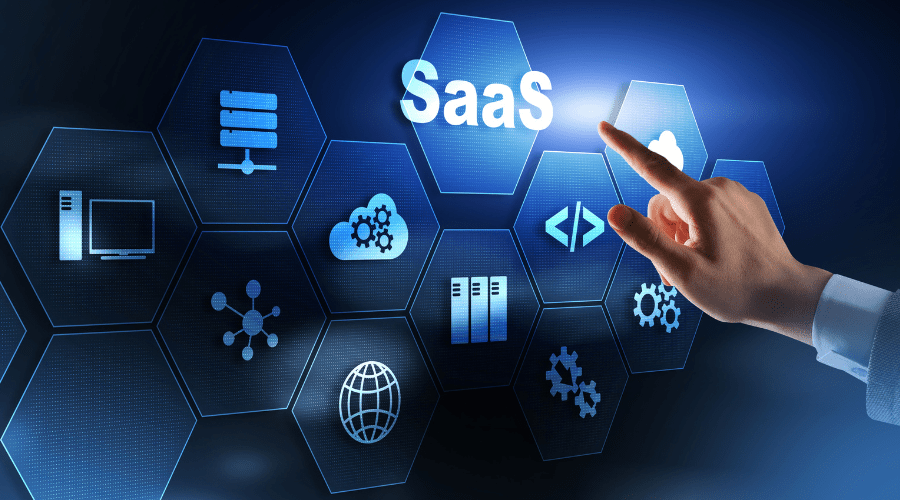The SaaS market has witnessed explosive growth in recent years, transforming the way businesses operate across various sectors. This rapid expansion necessitates a comprehensive understanding of the market dynamics to capitalize on emerging opportunities and navigate potential challenges. A thorough saas market study is crucial for businesses seeking to enter the SaaS space, optimize existing offerings, and maintain a competitive edge.
Understanding the SaaS Market Definition
SaaS, or Software as a Service, refers to a software distribution model where software applications are hosted by a third-party provider and made available to users over the internet. This eliminates the need for users to install and maintain software on their own devices, making it accessible from anywhere with an internet connection.
Key Drivers of SaaS Market Growth
Several factors contribute to the sustained growth of the SaaS market:
- Cloud Computing Adoption: The widespread adoption of cloud computing has significantly fueled the growth of SaaS. Cloud platforms provide the infrastructure and scalability necessary to support SaaS applications effectively.
- Increased Demand for Remote Work and Collaboration: The rise of remote work and the need for seamless collaboration across distributed teams have driven the demand for cloud-based solutions.
- Mobile Device Proliferation: The increasing use of smartphones and tablets has created a demand for mobile-friendly SaaS applications that can be accessed anytime, anywhere.
- Focus on Cost-Effectiveness: SaaS models offer a cost-effective alternative to traditional on-premises software, eliminating the need for significant upfront investments in hardware and software licenses.
- Improved Business Agility: SaaS applications enable businesses to quickly adapt to changing market conditions and scale their operations as needed.
Key Market Segments
The SaaS market is highly diverse and encompasses a wide range of applications across various industries. Some of the key market segments include:
- Customer Relationship Management (CRM): SaaS-based CRM solutions help businesses manage customer interactions, track sales leads, and improve customer satisfaction.
- Enterprise Resource Planning (ERP): Cloud ERP solutions streamline business processes, including finance, human resources, and supply chain management.
- Marketing Automation: SaaS platforms automate marketing tasks such as email campaigns, social media marketing, and content marketing.
- Human Capital Management (HCM): SaaS-based HCM solutions help businesses manage various aspects of human resources, including payroll, benefits, and talent acquisition.
- Cybersecurity: Cloud-based cybersecurity solutions protect businesses from cyber threats, such as malware attacks and data breaches.
Competitive Landscape
The SaaS market is highly competitive, with a large number of established players and emerging startups vying for market share. Key players in the market include:
- Salesforce: A leading provider of CRM solutions.
- Microsoft: Offers a wide range of cloud-based applications, including Office 365 and Azure.
- Google: Provides a suite of cloud-based services, including Google Workspace and Google Cloud Platform.
- Amazon Web Services (AWS): A leading provider of cloud infrastructure and platform services.
- Oracle: Offers a comprehensive suite of enterprise software and cloud solutions.
Challenges and Opportunities
While the SaaS market presents numerous opportunities, businesses also face several challenges:
- Security Concerns: Data security and privacy are major concerns for businesses adopting cloud-based solutions.
- Integration Challenges: Integrating SaaS applications with existing IT infrastructure can be complex and challenging.
- Vendor Lock-in: Businesses may face challenges in switching to alternative providers due to vendor lock-in.
- Competition: The intense competition in the SaaS market requires businesses to differentiate themselves through innovation and superior customer service.
Conducting a Comprehensive SaaS Market Study
A comprehensive saas market study is essential for businesses to gain a deeper understanding of the market landscape and make informed decisions. Key aspects of a saas market study include:
- Market Size and Growth Analysis: Analyzing the current market size and identifying key growth drivers and trends.
- Competitive Landscape Analysis: Identifying key competitors, analyzing their strengths and weaknesses, and assessing their competitive strategies.
- Customer Analysis: Understanding customer needs, preferences, and buying behavior.
- Technology Trends: Identifying emerging technologies that are likely to impact the SaaS market, such as artificial intelligence, machine learning, and the Internet of Things (IoT).
- Regulatory and Compliance Considerations: Evaluating the regulatory landscape and ensuring compliance with relevant data privacy and security regulations.
Key Benefits of a SaaS Market Study
Conducting a thorough saas market study offers numerous benefits for businesses:
- Informed Decision-Making: Provides valuable insights to support strategic decision-making, such as product development, pricing, and go-to-market strategies.
- Competitive Advantage: Helps businesses gain a competitive edge by identifying market opportunities and developing innovative solutions.
- Risk Mitigation: Helps businesses identify and mitigate potential risks, such as security threats and competitive pressures.
- Improved Resource Allocation: Enables businesses to allocate resources effectively and prioritize investments in areas with the highest potential for return.
- Enhanced Customer Satisfaction: Helps businesses better understand customer needs and develop solutions that meet their specific requirements.
The Future of the SaaS Market
The SaaS market is poised for continued growth and innovation in the coming years. Key trends that are likely to shape the future of the market include:
- Artificial Intelligence (AI) and Machine Learning (ML): AI and ML will play an increasingly important role in SaaS applications, enabling personalized experiences, predictive analytics, and automated workflows.
- Edge Computing: Edge computing will enable faster processing and reduced latency for SaaS applications, particularly for applications that require real-time data processing.
- Internet of Things (IoT): The growing number of connected devices will generate massive amounts of data, creating new opportunities for SaaS applications that can leverage this data to provide valuable insights.
- Increased Focus on Customer Experience: Businesses will increasingly focus on providing exceptional customer experiences, including personalized support and seamless integration with other applications.
By staying abreast of these trends and conducting regular saas market studies, businesses can navigate the evolving landscape of the SaaS market and capitalize on the numerous opportunities it presents.











